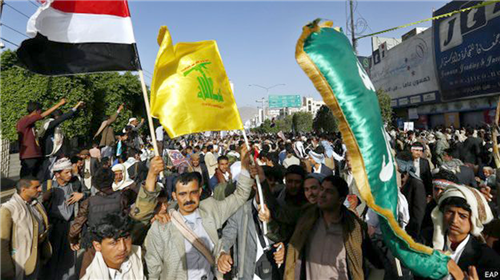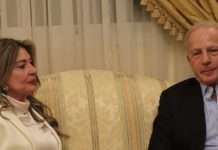Iran and Hezbollah, hijackers of planes
Turki Al-Dakhil/Al Arabiya/February 25/16
Saudi Arabia is confronting several schemes plotted by Iran. A few days ago, the Manila Times reported that it saw confidential documents confirming that a team of 10 people – including six Yemenis – have left Iran in separate flights via Turkey and arrived in several countries in South East Asia in an attempt to execute their plan to blow up and hijack Saudi airplanes.
Iran and its affiliates, primarily the terrorist group Hezbollah, have a history of targeting passenger planes. On April 29, 1986, Kuwait said it had thwarted an attempt by a group of 12 people to hijack a Kuwaiti Airways plane and take it to an unknown location in East Asia. Iran and its affiliates, primarily the terrorist group Hezbollah, have a history of targeting passenger planes. The investigation accused Imad Mughniyeh, then-Hezbollah’s leader of security apparatuses. In 1988, he hijacked the Kuwaiti Al-Jaberiya jet and forced it to alter its route toward Mashhad in Iran and then to Larnaca in Cyprus. Kuwaiti passengers Abdullah Khalidi and Khaled Ayoub were shot dead by Mughniyeh and dumped off the plane. Back then, Mughniyeh – upon direct orders from Hezbollah leaders – demanded the release of 17 prisoners held by Kuwait for their role in the 1983 bombings that in one day targeted the country’s major power plant, international airport, the American and French embassies, a petrochemical plant and a residential compound. Iran, Hezbollah and hijacked planes are a never-ending story of criminality that knows no limits or mercy.
Will Lebanon become a state once again?
Mshari Al Thaydi/Al Arabiya/February 25/16
Saudi Arabia’s suspension of aid worth $4 billion to Lebanon’s army and Internal Security Forces derives from Riyadh’s declining relationship with the Lebanese state since the hegemony of pro-Iran Hezbollah and its follower, the Free Patriotic Movement led by Michel Aoun. It is not true that Riyadh has had enough of Lebanese media criticism – despite this, Saudi support continued because it was aware that Lebanon is diverse religiously and politically. However, things took a dangerous turn when the Lebanese state broke with its Arab and Muslim neighbors after its Aounist Foreign Minister Gibran Bassil refused to adopt Arab condemnation of the arson attack against the Saudi embassy in Tehran and its consulate in Mashhad. Gibran justified himself by claiming to protect Lebanese national unity and impartiality.
Hezbollah’s hegemony
Lebanese Justice Minister Ashraf Rifi resigned because of “Hezbollah’s influence in government” and its paralyzing of the country’s politics. The people have been prevented from electing a president for 21 months due to Hezbollah, which does not consider the state a priority and is busy waging regional wars.
Hezbollah is managing Lebanon’s foreign affairs. For now, Lebanon is not even close to being a state. The party issued a statement in response to the Saudi aid suspension, evading responsibility for the deterioration of Lebanese-Saudi relations and repeating the usual insults toward Riyadh. Hezbollah is managing Lebanon’s foreign affairs through Bassil. For now, Lebanon is not even close to being a state.


















